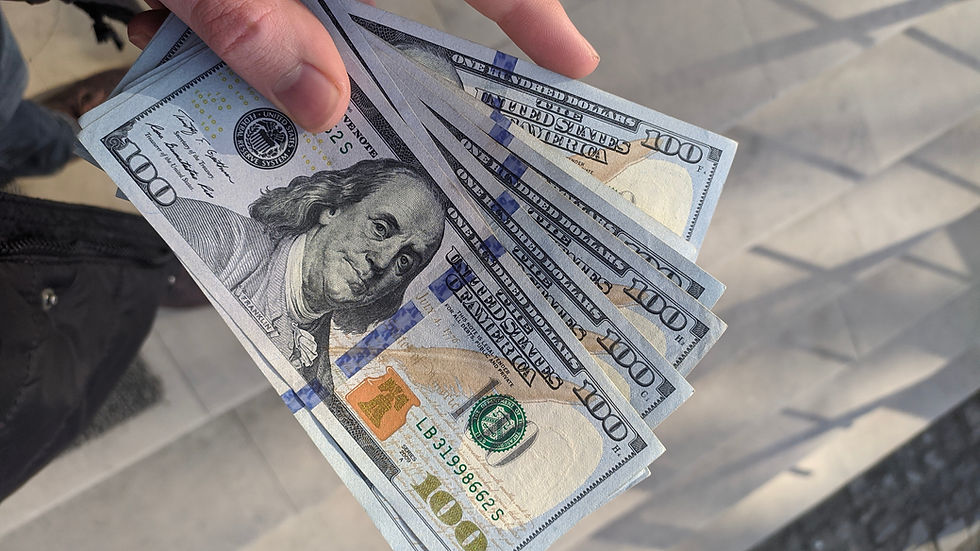Cash Is King
- Jeremy Ellisor

- Feb 6, 2019
- 2 min read
Updated: Sep 25, 2025
How much cash should you have saved for emergency and cash reserve?

Karlyn Bowman with Forbes magazine says, “In the January Fox News poll, 20% said they could not miss a paycheck before they couldn’t pay their bills, while 18% said they could miss one paycheck and 16% said they could miss two before they couldn’t pay their bills.”
Let me sum that up for you… that means that 54% of those polled would not be able to pay their bills if they missed just two paychecks! How about you? What would you do if you found yourself without job income? There are a host of things that might cause this: your company gets bought out, your company restructures or downsizes, you are in an accident, or you get diagnosed with an illness that prevents you from working.
None of this is fun to think about because I’m a positive person, but I’m also a realist, and these things do happen. Working with clients has taught me that we all need a cash reserve to hedge again the unexpected. As I like to say, "Cash is king."
Back to the Basics
What is an emergency fund?
First, it is NOT using credit cards or using a home equity loan to float yourself through the emergency. It is having CASH reserves set aside for a negative personal financial event. It is planning for the unexpected, things like the loss of a job, a gap in employment, an illness, or a major repair to your home.
How much cash reserves should you have?
If you are a single income household, I would recommend that you have six times your monthly expenses set aside. If you are a dual income family, then the minimum can be reduced to three months. To be clear, it is based on your monthly living expenses, not your gross income. If you don’t know what you spend each month, just look at the bank statements for your primary household checking account. Look at how much you spend each month for a continuous three month period and then take an average. That amount is what it takes to live your current lifestyle. Because it is an estimate, I would also recommend that you increase this number by about 10% to cover one time annual expenses that may pop up during your time without pay.
For example, in a dual income household, you would calculate it like this:
(Month 1 + Month 2 + Month 3) ÷ 3 = Monthly Average
Monthly Average X 1.10 = Estimated Monthly Living Expense
Having adequate cash reserves is one of the first steps of any successful financial plan. Be assured that one day the unexpected will occur in one form or another. Are you ready? If you aren’t, start working towards this goal today. You may find this video on saving helpful to get started.
If you still have questions about financial planning and want the security of working with a professional, schedule a phone call with me and let’s chat.





